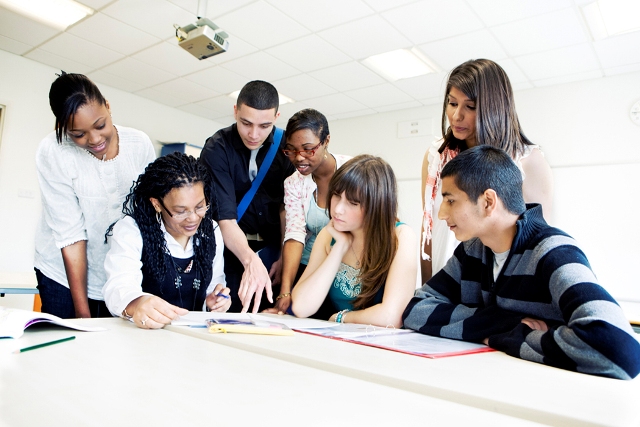For Students
The Power of Peer Learning: How You Can Seriously Benefit from Fellow Students
Admin Jul 29, 2023 03:40 PM

TAGS
Learning is a lifelong journey that takes place in various environments, including classrooms, libraries, and online platforms. While traditional educational settings often emphasize the role of teachers and instructors, the concept of peer learning has gained recognition for its powerful impact on students' educational experiences. Peer learning, also known as collaborative learning, refers to the process of students actively engaging with and learning from their fellow classmates. let’s explore the benefits and advantages of peer learning, emphasizing how students can indeed seriously learn from their peers.
Diverse Perspectives and Experiences: One of the most significant benefits of peer learning is the diversity of perspectives and experiences that fellow students bring to the learning environment. Each student comes from a unique background and possesses individual knowledge and insights. Interacting with peers exposes students to various viewpoints, stimulating critical thinking and encouraging deeper understanding of subject matter.
Active Participation and Engagement: Peer learning promotes active participation and engagement in the learning process. When students collaborate with one another, they become more involved in discussions, debates, and problem-solving activities. Active engagement leads to improved information retention and better overall learning outcomes.
Increased Confidence and Communication Skills: Engaging in discussions with fellow students helps individuals build confidence in articulating their thoughts and ideas. Peer learning environments provide a safe space for students to express themselves, fostering effective communication skills that are crucial in both academic and real-world settings.
Enhanced Teamwork and Collaboration: In peer learning settings, students often work together on group projects, assignments, or problem-solving tasks. This fosters teamwork and collaboration skills, which are essential in the professional world. Learning to collaborate with others prepares students for future career opportunities and improves their ability to work effectively in diverse teams.
Constructive Feedback and Peer Evaluation: Through peer learning, students have the opportunity to provide and receive constructive feedback from their peers. Peer evaluation can be an effective method of identifying strengths and weaknesses, offering valuable insights for improvement. This self-assessment and constructive criticism help students refine their skills and enhance their learning experience.
Improved Motivation and Accountability: Learning alongside peers can boost motivation and accountability. When students collaborate on projects or study together, they feel a sense of responsibility towards their group, leading to increased dedication and effort in their academic pursuits.
Teaching Others Reinforces Learning: In a peer learning setting, students often take turns explaining concepts to their classmates. This process of teaching others reinforces their understanding of the subject matter. As the saying goes, "The best way to learn is to teach."
Adaptability and Flexibility: Peer learning encourages adaptability and flexibility as students interact with individuals from various backgrounds and learning styles. This exposure prepares them to adapt to diverse learning environments and develop a growth mindset.
Building Supportive Networks: Peer learning environments often foster strong and supportive networks among students. Having a network of peers with whom to discuss academic challenges or seek help provides a sense of community and emotional support, reducing feelings of isolation.
Real-Life Application and Problem-Solving: Collaborating with peers allows students to tackle real-life problems and scenarios, encouraging them to apply theoretical knowledge to practical situations. This real-life application enhances their problem-solving skills and prepares them for challenges outside the classroom.
Peer learning is a powerful and effective educational approach that fosters collaboration, active engagement, and diverse perspectives. Learning from fellow students provides numerous advantages, including increased confidence, enhanced communication skills, and improved problem-solving abilities. The exchange of ideas and feedback in peer learning environments contributes to a deeper understanding of subject matter and prepares students for success in both academic and professional settings.
While teachers and instructors play a vital role in guiding students' learning journeys, peer learning complements traditional teaching methods, creating well-rounded and empowered learners. Embracing the concept of peer learning can lead to more enriching educational experiences and equip students with the skills and mindset necessary to thrive in a rapidly changing world.
Search
Latest Blogs

Exploring Opportunities in Emerging Engineering field
Admin
Dec 14, 2024 05:18 PM

Navigating College Majors
Admin
Sep 25, 2024 04:04 PM

Tools for Measuring Strengths For Career
Admin
Sep 25, 2024 03:27 PM
Interested in getting latest updates?
SUBSCRIBE


















